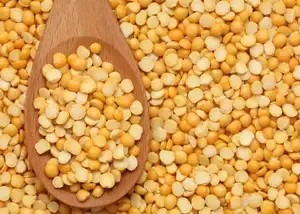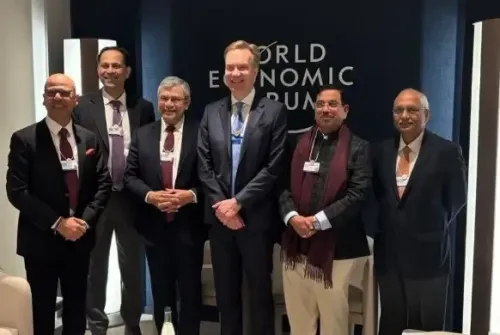Government Extends Duty-Free Import of Yellow Peas to Mitigate Inflation

Synopsis
Key Takeaways
- Duty-free import of yellow peas extended until May 31.
- 10 percent import duty on lentils imposed.
- Government supports farmers through MSP and procurement schemes.
- Initiatives aimed to enhance domestic pulse production.
- Self-sufficiency in pulses is a key government objective.
New Delhi, March 9 (NationPress) The Government has prolonged the duty-free import of yellow peas for an additional three months, extending it until the end of May, and has imposed a 10 percent duty on imports of lentils (masur) effective immediately, as per an official notification.
This measure aims to enhance domestic availability of pulses and maintain price stability. A 10 percent import duty on lentils (masur) has been officially introduced, while the duty-free import of yellow peas will last until May 31 of this year.
Additionally, a 5 percent basic customs duty alongside a 5 percent Agriculture Infrastructure and Development Cess (AIDC) on lentils will take effect from Saturday.
The government has been adjusting its tariff policies concerning pulses to manage inflation amid production shortfalls, while simultaneously promoting domestic agriculture.
Initially, the duty-free import of yellow peas was sanctioned back in December 2023 to address rising local prices, as domestic production of 'chana' was insufficient. This exemption has been extended periodically until the end of February.
In 2024, India’s imports of yellow peas reached 30 lakh tonnes, out of a total of 67 lakh tonnes for all pulses.
The Centre has also been purchasing pulses at the Minimum Support Price (MSP) from local farmers, following approval for the ongoing integrated Pradhan Mantri Annadata Aay Sanrakshan Abhiyan (PM-AASHA) Scheme, which is set to continue until 2025-26. The scheme aims to assist farmers in securing better prices for their crops.
The Government is dedicated to buying 100 percent of Tur produced by farmers through central nodal agencies such as NAFED and NCCF, according to an official statement.
To motivate farmers to boost domestic pulse production and lessen reliance on imports, the government has sanctioned the procurement of Tur, Urad, and Masur under the Price Support Scheme (PSS), ensuring it matches 100 percent of the state's production for the procurement year 2024-25.
Additionally, it was announced in the 2025 Budget that procurement of Tur (Arhar), Urad, and Masur will continue at 100 percent of state production for another four years via Central Nodal Agencies to attain self-sufficiency in pulses across the nation.
Union Minister for Agriculture and Farmers' Welfare, Shivraj Singh Chouhan, recently stated that the Centre has approved the procurement of Tur (Arhar) in states including Andhra Pradesh, Chhattisgarh, Gujarat, Haryana, Karnataka, Madhya Pradesh, Maharashtra, Telangana, and Uttar Pradesh under the Price Support Scheme for the Kharif 2024-25 Season, totaling 13.22 LMT.










